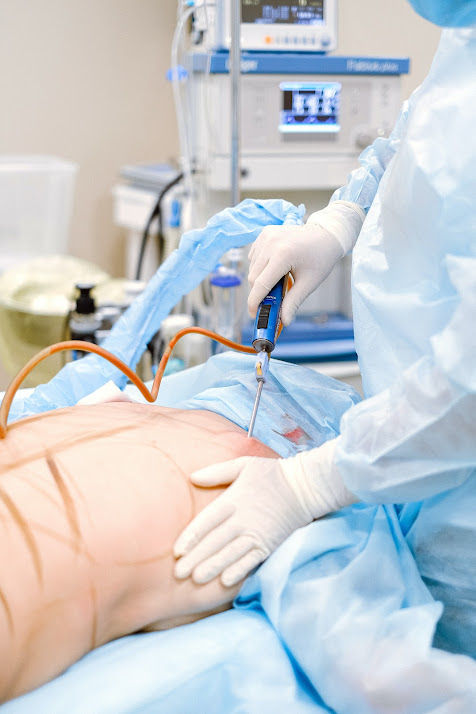Cancer Rising in Your 30s and 40s: How to Stay Protected
Cancer Rising in Your 30s and 40s: How to Stay Protected
A. Explanation of rising rates of cancer in people in their 30s and 40s
Cancer is a growing concern for people in their 30s and 40s as the incidence of this disease is increasing in this age group. This is partly due to an increase in the risk factors for cancer such as sedentary lifestyles, unhealthy diets, and exposure to environmental toxins. Additionally, advancements in medical technology have allowed for earlier detection of cancer, leading to an increase in the number of cases diagnosed.
B. Importance of taking preventative measures at a young age
Preventative measures are crucial for reducing the risk of developing cancer, especially for people in their 30s and 40s. Taking proactive steps to maintain a healthy lifestyle and minimize exposure to cancer risk factors can help lower the chances of developing the disease. Early detection is also important, as it increases the chances of successful treatment and recovery.
Understanding Your Risk Factors
A. Family history of cancer
A family history of cancer can increase your risk of developing the disease, as certain genetic mutations can be passed down from one generation to the next. This is why it's important to be aware of your family's medical history and to inform your doctor of any family members who have been diagnosed with cancer.
B. Exposure to environmental toxins
Exposure to environmental toxins such as pollution, pesticides, and radiation can also increase your risk of developing cancer. It is important to be mindful of your surroundings and to minimize your exposure to these harmful substances as much as possible.
C. Lifestyle choices (diet, exercise, smoking, alcohol consumption
Lifestyle choices such as diet, exercise, smoking, and alcohol consumption can also significantly impact your risk of developing cancer. A diet high in processed and fatty foods, a lack of physical activity, smoking, and excessive alcohol consumption can all increase your risk. On the other hand, eating a diet rich in fruits, vegetables, and whole grains, engaging in regular exercise, avoiding tobacco, and limiting alcohol consumption can help lower your risk.
Preventative Measures
A. Regular check-ups and screenings
Regular check-ups and screenings are an important preventative measure as they allow doctors to detect any potential health issues early on. For example, women should undergo regular mammograms and pap smears, while men should have regular prostate exams.
B. Healthy lifestyle habits (diet, exercise, avoiding tobacco and excessive alcohol)
Maintaining a healthy lifestyle through a balanced diet, regular exercise, and avoiding tobacco and excessive alcohol can greatly reduce the risk of developing cancer. Eating a diet rich in fruits and vegetables, and limiting processed foods, red meat, and sugar can help maintain a healthy weight and reduce the risk of cancer.
C. Vaccinations for preventable cancers (e.g. HPV)
Vaccinations, such as the HPV vaccine, can also prevent certain types of cancer. The HPV vaccine protects against the human papillomavirus, which is known to cause several types of cancer, including cervical and oral cancer.
D. Minimizing exposure to environmental toxins
Minimizing exposure to environmental toxins, such as pollution and pesticides, can also lower the risk of developing cancer. This can be achieved by being mindful of the products used in and around the home, choosing organic produce, and avoiding or minimizing time spent in areas with high levels of pollution.
Early Detection
A. Importance of identifying cancer early
Early detection is crucial in the fight against cancer, as it increases the chances of successful treatment and recovery. By detecting cancer in its early stages, treatment options are typically more effective and have fewer side effects.
B. Common signs and symptoms to look for
Common signs and symptoms of cancer include persistent fatigue, unexplained weight loss, pain that does not go away, changes in the skin, and changes in bowel or bladder habits. If you experience any of these symptoms, it is important to speak with a doctor promptly.
C. Regular screenings and check-ups
Regular screenings and check-ups, such as mammograms, pap smears, and prostate exams, can also help detect cancer early. It is important to follow recommended screening guidelines and to discuss any potential risks or concerns with your doctor. Additionally, self-examinations, such as monthly breast self-exams for women and testicular self-exams for men, can help with early detection.
Conclusion
A. Summary of steps to take to protect against cancer in your 30s and 40s
In conclusion, taking proactive steps to protect against cancer in your 30s and 40s is crucial in maintaining overall health and wellness. Understanding your risk factors, such as family history, exposure to environmental toxins, and lifestyle choices, and taking preventative measures such as a healthy diet and exercise, avoiding tobacco and excessive alcohol, and regular screenings can greatly reduce the risk of developing cancer.
B. Emphasis on proactive approach to health and wellness.
It is also important to be aware of the common signs and symptoms of cancer, and to seek medical attention promptly if any symptoms persist. By taking a proactive approach to health and wellness, individuals in their 30s and 40s can increase their chances of detecting and successfully treating cancer early on.







Comments
Post a Comment